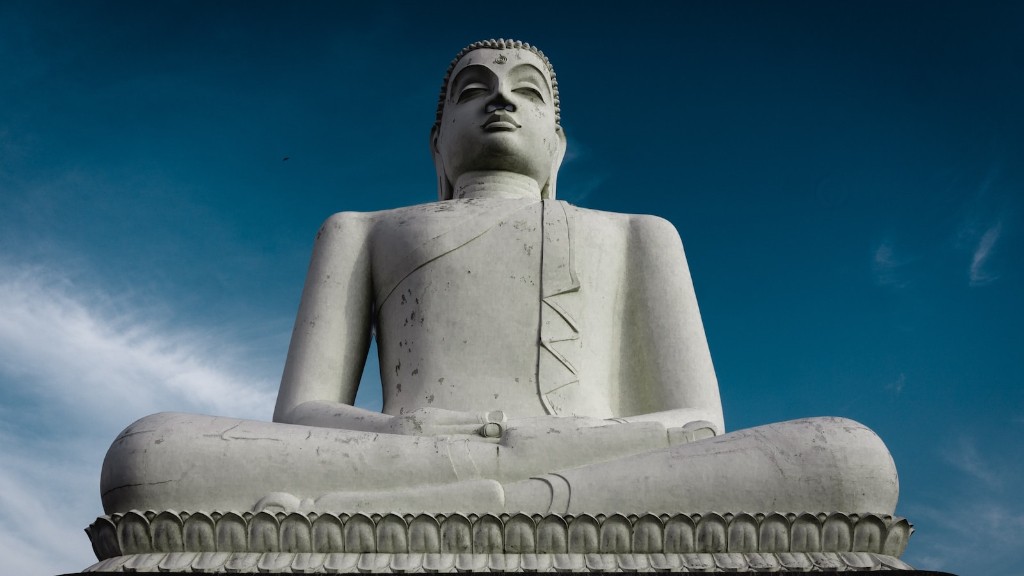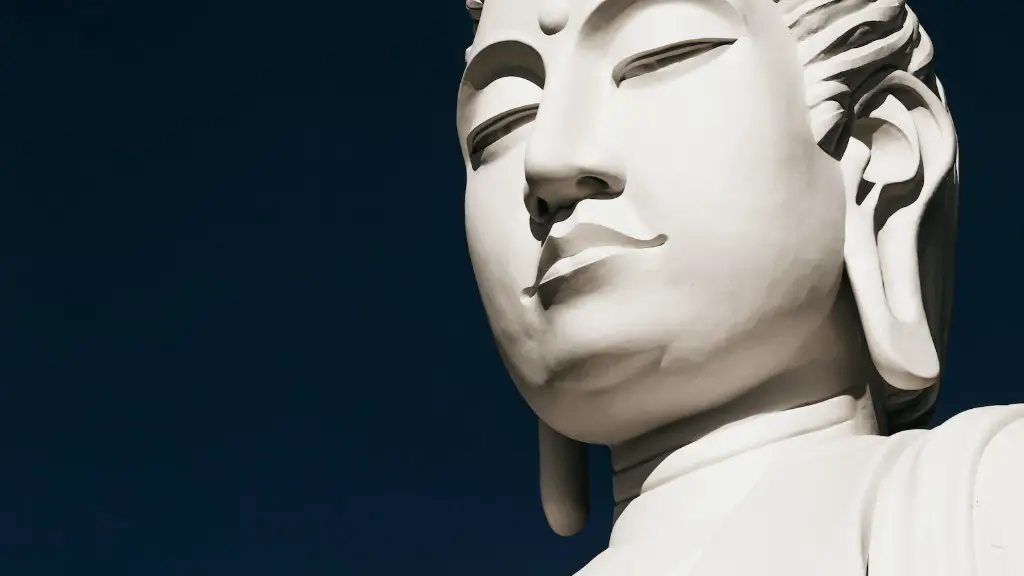Buddhism is a religion and philosophybased on the teachings of Siddhartha Gautama, who is commonly known as the Buddha. According to Buddhist tradition, the Buddha lived and taught in the eastern part of the Indian subcontinent sometime between the 6th and 4th centuries BCE. He is recognized by Buddhists as an awakened or enlightened teacher who shared his insights to help sentient beings end their suffering through the elimination of ignorance and craving.
Buddhism is a religion that is based on the teachings of the Buddha. The basic beliefs of Buddhism include the Four Noble Truths, the Three Universal truths, and the law of karma.
What are 5 basic beliefs of Buddhism?
The Five Precepts are guidelines for living a moral and ethical life. They are:
1. Refrain from taking life
2. Refrain from taking what is not given
3. Refrain from the misuse of the senses
4. Refrain from wrong speech
5. Refrain from intoxicants that cloud the mind.
These precepts provide a basic framework for living a good life. By following them, we can avoid causing harm to others and ourselves.
Buddhism is a religion that teaches that all beings are connected and that actions have consequences. The main principles of Buddhism are karma, rebirth, and impermanence.
What are the 4 basic beliefs of Buddhism
The Four Noble Truths are the essence of Buddha’s teachings, though they leave much left unexplained. They are the truth of suffering, the truth of the cause of suffering, the truth of the end of suffering, and the truth of the path that leads to the end of suffering.
The Four Noble Truths are the most important teachings of Buddha and are essential to understanding the religion. Buddhists believe in karma (the law of cause and effect) and reincarnation (the continuous cycle of rebirth). followers can worship in temples or in their own homes.
What is one of the most important beliefs in Buddhism?
Buddhism teaches that there is no permanent self or soul, but that there is continuity of consciousness, which is reborn after each physical death. This is different from the concept of reincarnation, which suggests that a person is reborn into another body with a new identity.
Buddhists believe that people should try to end suffering; all things should be seen as having no self or essential nature. The main Buddhist values are love, wisdom, goodness, calmness and self-control. Buddhists strive to live in harmony with all beings and to develop compassion and wisdom.
What are modern Buddhism beliefs?
Buddhist modernism is a movement that occurred in the late 19th and early 20th centuries. Its primary goal was to modernize the religion so that it would be more accessible and relevant to people living in the modern world. To this end, Buddhist modernists emphasized certain aspects of the religion, such as texts, rationality, meditation, egalitarianism, and increased participation of women and laity. At the same time, they deemphasized others, such as ritual, dogma, clerical hierarchy, “superstition,” traditional cosmology, and icon worship.
1. Clear Viewpoint: Don’t just believe anything just because you saw it or you heard it. Be discerning and question everything.
2. Values: We end up digging a hole so deep that it is hard for us to find a way back home if we don’t have our values in order. Prioritize what is important to you.
3. Words that Inspire: Actions speak louder than words, but words can still be powerful motivators. Choose your words carefully and use them to spur yourself and others on to positive action.
4. Efforts with Impact: Be mindful of how your efforts are impacting the world around you. Make sure that your actions are having the positive effect that you desire.
5. Be Mindful: Concentrate on the present moment and be aware of your thoughts, feelings, and actions. This will help you to be more in control of your life and make better choices.
6. Concentrate Right: Focus your attention on what is important and on what will help you to achieve your goals. Let go of distractions and give your full attention to what is most important.
7. Be Happy: This may seem like an obvious one, but it’s worth repeating
What are Buddhist beliefs about God
Buddhist teachings state that there are divine beings called devas (sometimes translated as ‘gods’) and other Buddhist deities, heavens, and rebirths in its doctrine of saṃsāra, or cyclical rebirth. However, Buddhism teaches that none of these gods is a creator or an eternal being, though they can live very long lives.
The Eightfold Path is a series of eight steps that Buddhists can follow to help them lead a contented (satisfactory) life. The steps are: Right Understanding; Right Thought; Right Speech; Right Action; Right Livelihood; Right Effort; Right Mindfulness; and Right Concentration.
What are 3 main beliefs of Hinduism?
Hinduism is a religion with a diverse set of beliefs. Many Hindus believe in a single, all-powerful God, while others believe in multiple gods and goddesses. The Hindu concept of karma teaches that our actions in this life determine our future experiences, and that we can be reborn into different forms in order to learn and grow. Hindus also generally believe in reincarnation, the idea that our souls never die but are instead reborn into new bodies.
Buddhism is a religion that focuses on personal spiritual development. Buddhists seek to reach a state of nirvana, following the path of the Buddha, Siddhartha Gautama, who went on a quest for Enlightenment after experiencing the suffering of the human condition. The Noble Eightfold Path, Buddhism’s key ethical system, outlines the steps necessary to reach nirvana.
Buddhists believe in karma, the law of cause and effect. They also believe in reincarnation, the belief that after someone dies, they are reborn into another form. Buddhists also teach that there is no soul, but rather a continuous cycle of life, death, and rebirth. Suffering is seen as a result of craving and attachment.
The aim of Buddhism is to end suffering by letting go of attachment and craving. Nirvana is seen as the ultimate goal, a state of perfect peace and freedom.
Does Buddhism believe in marriage
In Buddhism, marriage is not a religious obligation or a means for procreation. It is simply an option for each individual to make If an individual believes marriage will bring them happiness and keep them on the path of enlightenment, then they are free to make that choice.
There are inherent and fundamental differences between Buddhism and Christianity. Christianity is at its core monotheistic and relies on a God as a Creator, while Buddhism is generally non-theistic and rejects the notion of a Creator God. Christianity believes in the existence of a soul that is separate from the body, while Buddhism believes that there is no such thing as a soul, and that what we call the “self” is just a collection of thoughts and emotions. Christianity also believes in an afterlife, where the soul goes to either heaven or hell, while Buddhism believes in reincarnation.
What type of religion is Buddhism?
It’s interesting to note that Buddhism is a non-theistic religion, which means that it does not believe in a creator god. This is in contrast to other religions such as Christianity, which do believe in a higher power. Despite this difference, Buddhism is still considered a philosophy and a moral discipline, and it has its origins in India dating back to the 6th and 5th centuries BCE. The founder of Buddhism was Siddhartha Gautama, who is also known as the Buddha. He was said to be a Hindu prince, and there are many legends and stories about him. If you’re interested in learning more about Buddhism, it’s definitely worth doing some further research!
The Ten Virtues of Buddhism are:
1. Body – Protect Life, Give Generously, Maintain One’s Discipline
2. Speech – Speak Honestly, Reconcile, Speak Pleasantly, Speak Meaningfully
3. Mind – Generosity, Loving Kindness, Correct View of Reality
Final Words
There are many different schools of Buddhism, each with their own beliefs. However, there are some basic beliefs that are shared among the different schools. These beliefs include the Four Noble Truths, the Eightfold Path, rebirth, and karma.
Buddhism is a religion that is based on the teachings of Siddhartha Gautama. He was born in Nepal in the 6th century BCE, and after reaching enlightenment, he began teaching his followers about the Four Noble Truths and the Eightfold Path. These are the two main tenets of Buddhism, and they are used in order to help people achieve nirvana, or liberation from the cycle of rebirth.



